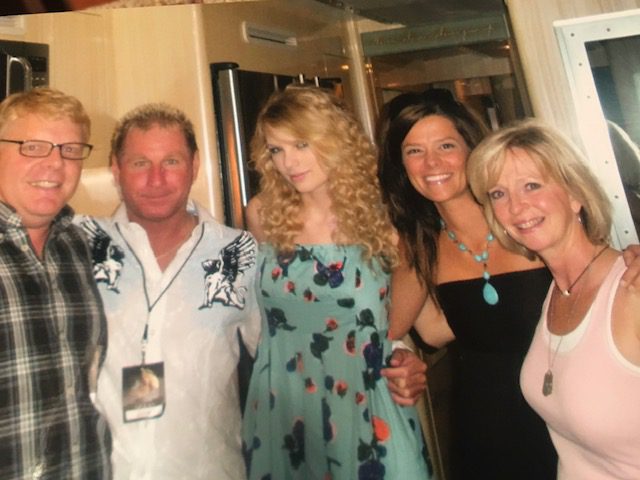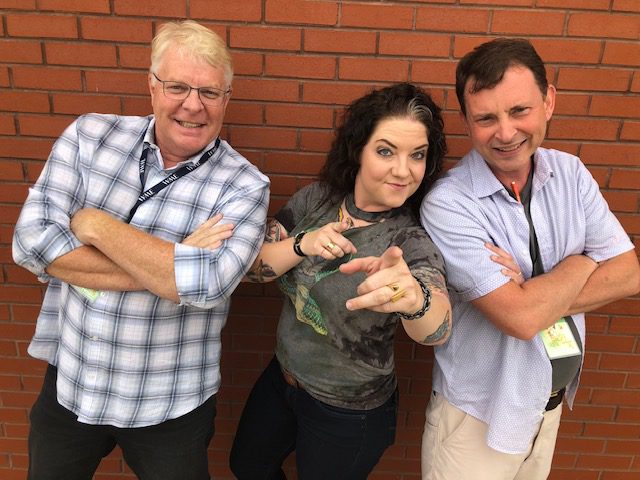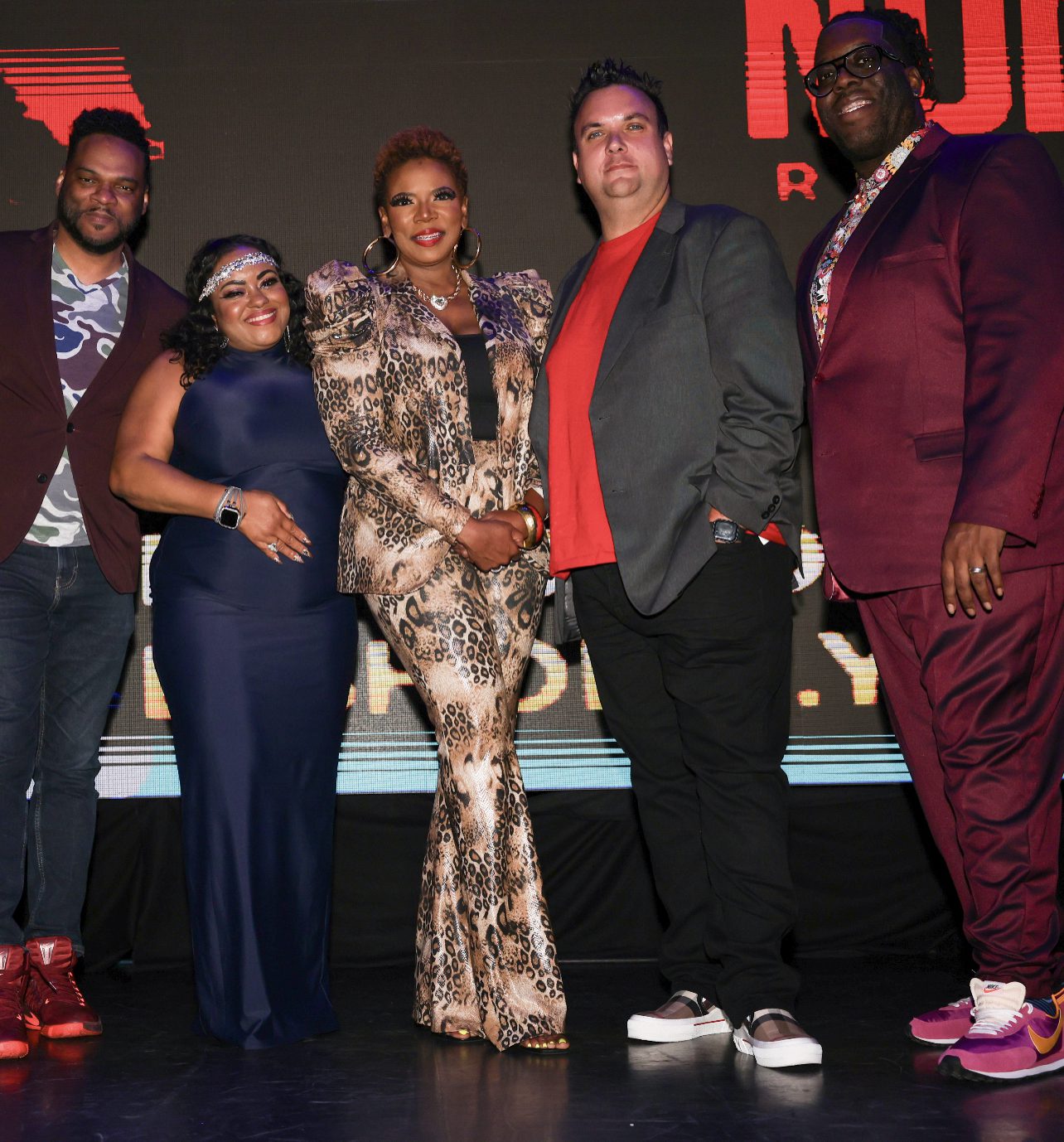My Music Row Story: WME’s Lane Wilson
The “My Music Row Story” weekly column features notable members of the Nashville music industry selected by the MusicRow editorial team. These individuals serve in key roles that help advance and promote the success of our industry. This column spotlights the invaluable people that keep the wheels rolling and the music playing.
Lane Wilson is a 30-year veteran Agent and Partner at WME. Working in the Music Division in their Nashville office, he is responsible for negotiating deals for amphitheater, stadium and arena-level touring artists. Wilson is also the responsible agent for several clients in Nashville and handles day-to-day affairs for Vince Gill, Gary Allan, Justin Moore, Tracy Lawrence, Joe Nichols and Rodney Atkins, just to name a few.
Outside of his role as Agent, Wilson is on the Board of Directors for Mission:Possible, an organization founded by Lawrence benefitting the homeless of Nashville. He is also serves on the Board/Advisory Council for Habitat for Humanity of Nashville and the Board of Directors for Leadership Music. Wilson is an active member of the Academy of Country Music and Country Music Association as well as the Adjunct Faculty Program for Belmont University.
MusicRow: Where did you grow up?
I grew up right here in Nashville. Fun fact, I can see the sixth floor of the hospital I was born in from my desk.

Pictured (L-R): Lane Wilson, Mark Roeder, Taylor Swift, Kristin Pridgen and Dana Burwell on the “Fearless Tour.” Photo: Courtesy of Lane Wilson
What were you into as a kid?
My mom and dad owned a business in town that was in the construction-related industry. I was always at their office and they happened to be located really close to a record store. I now realize I was on the leading edge of the streaming era before that was a thing because I was creating mixtapes and spreading them around my high school from stuff I would find in the record store. The radio scene in Nashville back then was pretty narrow. It was a couple of country stations and a classic rock station—that was really about it. So from hanging out at the record store, I could tell there was a whole world of other things out there. I remember ordering albums from Europe, waiting 13 to 16 weeks for delivery and then putting them on cassette tape and spreading them around my high school. I always loved the idea of turning somebody onto something that nobody else had heard yet.
I remember going on a field trip to the science museum and one of my mixtapes became a viral sensation on that field trip. [Laughs] We played it on the bus. I just had this sense of pride. I couldn’t believe I turned a whole group of people onto something that I initially discovered. That was the very beginning of diving into music discovery and having a passion for it.
How did you start pursuing that passion?
I went to school at MTSU. At that time Bridgestone Arena didn’t exist. There were no amphitheaters. Starwood hadn’t been built yet. Municipal Auditorium was all that Nashville had to offer. The tours that were out at the time had grown to a point where they didn’t fit Municipal anymore, so Murphy Center, the arena at MTSU, was the hot place for all the major concerts.

Pictured (L-R): Lane Wilson, Ashley McBryde and Brian Jones at CMA Fest 2017. Photo: Courtesy of Lane Wilson
As a byproduct of being into music and being around the music scene that was in full force at MTSU, I got into the special events committee which was charged with presenting concerts at MTSU. The years that I was there, the committee brought in U2, R.E.M., Def Leppard, Tina Turner, Chicago—the list was just amazing.
I really started to cultivate more of a passion for the live side of things there. While I was at MTSU, I traveled with a band that was touring around the Southeast. I was sensible enough to realize early on that I wasn’t talented enough to be a drummer for those guys, so I became the production guy for the band. We toured around the Southeast—we would leave on Thursday night and come back on Sundays at least 20 weekends a year.
What did you do after graduation?
I went to work in the business sector at Prudential, selling stocks and bonds right out of school. I spent maybe a year and a half there. I remember telling my roommate at the time, “I’ve got to get out of this suit and tie kind of deal.” He was like, “You can put an application in at our place, but there’s some weird stuff going on there.” At that time, he was working at a company called Triad. The weird stuff that was going on was all the closed-door meetings associated with a merger that they were about to go through with William Morris Agency.
I did three interviews there. By the third interview, I was like, “Listen, I’m going to lose the job I have by doing all these interviews. Are you guys hiring or not?” The lady said, “Just bear with us. We’re about to go through some major changes and we’ll be hiring when those are over with.” I think I might have been hire number one after the merger. That was 30 years ago. We’ve been through another merger since then with the Endeavor side of things, which has been a real game changer.
[Although it felt like it at the time,] finding my way into the music business wasn’t as accidental as I thought it was. The groundwork [for a career in music] was laid out. It was the music circles I was running in that kind of led me to where I am today.

Lane Wilson and Tracy Lawrence presenting a check to Cheryl Noe and Billy Eldridge at Nashville Rescue Mission in 2018. Photo: Courtesy of Lane Wilson
When you got to William Morris, did you start in the mailroom or as an assistant?
I got lucky because there was such a need to get bodies in place that I was able to skip that mailroom step and went straight to a desk. I trained there for a few years under some great people—some are still here and a lot have retired. I never would’ve thought that I would’ve been at one company for 30 years, and it’s a real testament to the evolution of the company and the co-heads of the office we have in place right now. I still look forward to coming into work every day. If you can say that 30 years later, something is going right.
Tell me about some big moments that affirmed you were in the right place.
There have been several moments where I have found myself in situations where you get to see the behind-the-scenes kind of stuff that most people don’t have the benefit of. That’s happened over and over and over again. We had a stint in Taylor Swift‘s career in the very beginning. Greg Oswald was the guy who was taking the point here in Nashville, and then there was a team of people out in Los Angeles that were involved as well. I was on the team with Greg, and I remember he and I flew to Fayetteville, Arkansas to see her perform. It was in a metal building set up for 7,000 people and the screams were absolutely deafening. My ears were ringing for three days. When we walked away from there, I remember thinking to myself, “That’s something that’ll probably change the music business forever.” And sure enough, it did. It was a bellwether moment in the music business that was happening. I’ve seen several of those over the course of 30 years since—we’re dealing with one in our office right now with Zach Bryan. He’s a guy that’s three to four years into his career and is adding second nights at stadiums—that’s unbelievable in such a short time.
Another moment [that comes to mind] is being in a signing meeting with Ashley McBryde years ago. She just started playing one hit song after another. This came at a time when we were shifting from the typical 50-week life cycle of a single to plowing through songs like crazy because things were shifting to a streaming format. I remember realizing in that meeting how important a body of work can be in this new era. You may have a song that’s a hit, but it may not be the one that connects. You’ve got to have something to back it up and then something to back that up. I remember hearing her body of work and being excited about that. She’d been touring around for many years before she wound up in our office, but it was one of those moments where we were like, “We gotta shut the door and not let her out on this office until she is a client.”

Pictured (L-R): Peter Hartung, Dustin Lynch, Barrett Sellers and Lane Wilson at IEBA in 2012. Photo: Courtesy of Lane Wilson
What is some of the best advice you got as you were coming up?
A reputation is something that you work on every single day, but you can ruin it in one day. You don’t get a lot of credit for building it over a 30 year period, but you can screw one up in one day. If you have a good one and a mistake happens, you can always lean on your good reputation and get a pass because people know it was an isolated mistake and not a pattern. So I try to work on that every single day I’m in the office.
What is something people may not know about you?
I have been married for 25 years and have two sons who are both in the business. I’ve moved into a whole other chapter of life now by having sons enter into the same circles that I’ve been running in, which can be scary but it’s a testament to my comfort level with how my experience has been.
I know philanthropy is really important to you. Tell me about your work with Tracy Lawrence’s Mission:Possible foundation.
Several years ago, Tracy Lawrence asked me and his managers if we would help set up a 501C3 for something that he started years ago called Mission:Possible. It was completely out of my realm of knowledge. My mom and dad were always civic-minded and were involved in the community, so I had a little bit of that underpinning already, but I was already thinking about [how I could give back.] About that same time, he asked me if I would get involved, so I was in the right place at the right time. It’s really taken off since then thanks to the incredible work by a hard-working Board of Directors. It’s all about supporting the homeless community in Nashville. We’ve raised over two million dollars. We fry 1,200 turkeys every Tuesday before Thanksgiving, which creates 9,600 meals that feed the homeless in Davidson and surrounding counties for the holiday. To see the growth of this thing over the last few years has just been incredible.

Lane Wilson with WME staff and other volunteers at Tracy Lawrence’s 2022 Mission:Possible Turkey Fry. Photo: Courtesy of Lane Wilson
What I’m starting to realize is when you have a charity that has a celebrity attached to it, fundraising can be easier than just running a charity without the celebrity component. So we’ve tried to help some of those other charities in Nashville that are associated with homelessness, and become a pass-through for money to flow to those organizations so they can keep doing their good work. I’ve now had the opportunity to meet a lot of people who do this work all day every day—and it is tough. We are in a fun business in entertainment, but these people are out there slugging it out every day just trying to prop up humanity. So we try to help support not only their message, but also support them financially so they can continue their good work.
Tracy’s 18th annual Turkey Fry is tomorrow at the Nashville Fairgrounds, with his benefit concert taking place at Wildhorse Saloon in the evening. What are you most looking forward to during this year’s event?
When the Turkey Fry is over, and the food has been distributed, and the fundraising concert later has concluded and I am walking out of the venue completely exhausted along with my friends and team members of Mission:Possible… who are also exhausted, I get that same feeling when the last truck was loaded backstage at MTSU years ago. The satisfaction of playing a small role in creating something that has a large impact on people is the most satisfying feeling in the world.


























































